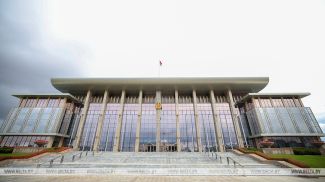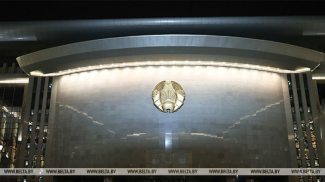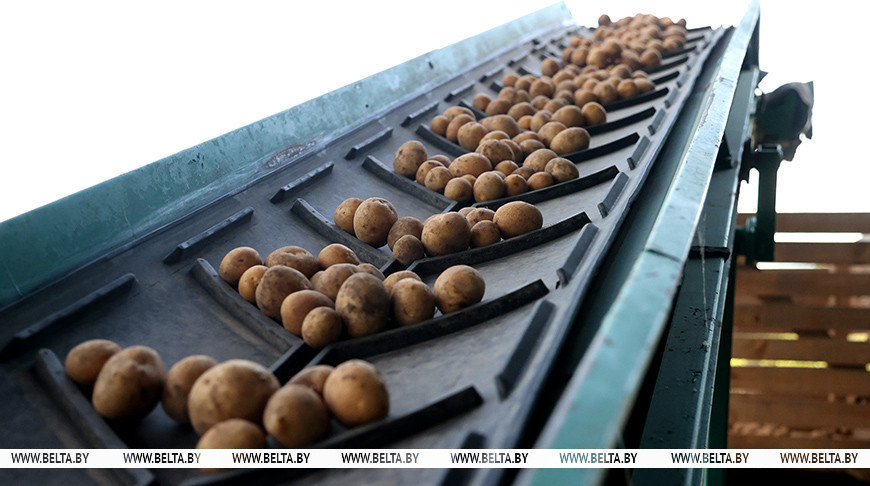
MINSK, 27 September (BelTA) – Belarusian President Aleksandr Lukashenko told Minsk students about his agricultural experiments during the Q&A session at one of Belarusian universities on 27 September, BelTA has learned.
“I do experiments too. You know, I love farming. I visit agricultural fields every day. It is important for me to make sure that academics fulfill their promises,” the head of state said.
One of the participants of the Q&A session asked the president about his top five favorite crops. “Well, we can't do without potatoes. Apples are second most important crops for Belarus. We are an apple land. I need to think about it. I could also name plums, apricots, and so on,” the head of state said.
The president recalled that some time ago he laid an orchard where he planted cherry plums and peaches. Watermelons have also taken root in Belarus; Aleksandr Lukashenko had actively encouraged people to grow this crop. “Today, this crop is already cultivated throughout the country. And it has produced a good harvest this year. Watermelons are sweet this year, because the weather was so dry. This crop is not demanding, though you need to fertilize the soil. I just scattered them onto the ground and they grew on their own. I could name many crops. They are very important to me. But potatoes and apples are above all,” said Aleksandr Lukashenko.
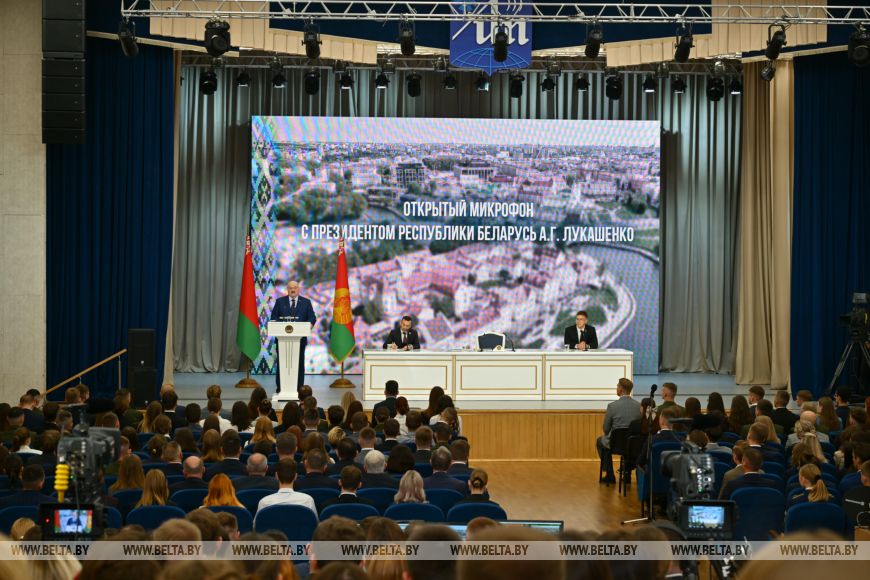
The head of state went on saying: “I would name corn. It is very important for us. A true helper. The climate has become drier. Corn grows well, especially in Gomel. This saves us. If we look from this perspective, I can also name clover and flax, since the latter is on our coat of arms. Well, I have already named five.”
Talking about his agricultural experiments, Aleksandr Lukashenko mentioned the cultivation of potatoes. Generally speaking, in order to test the quality or viability of certain crop varieties, the president plants them on collective farm lands, which are nicknamed his experimental fields. He does that in order to see what comes out of it.
It is worth mentioning that some of these lands are good, but half of them is not fertile. “What I see there can be projected into the entire country,” he said. Most of the products grown on this land are distributed among people.
There are also many animals and poultry in the president's farm. “They give me horses and other animals. What do I need them for? I'm a village man. Okay, let it be. Children from the neighboring agro-town come to ride these horses. There are 15 cows. They are the best. I have recently been gifted a cow from Brest Oblast. It produced 59 liters of milk per day in September, in the third month after giving birth. Six buckets per day! Well, she's a real beauty. She is the best,” the president said.
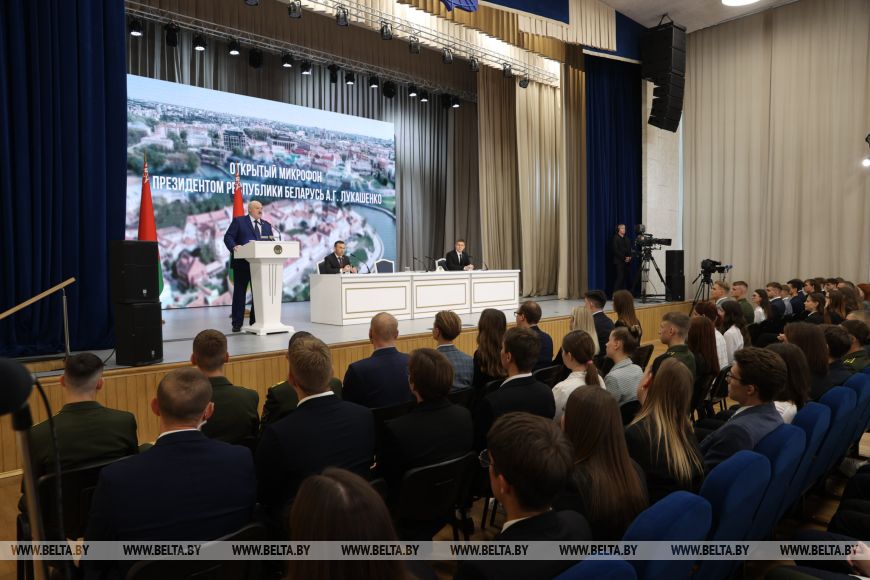
Aleksandr Lukashenko added that he adjusted the diet for this cow so as not to overfeed her with concentrates. After all, this is not very good for her and for the milk quality: “Yesterday they told me that she gave 49 liters. But I do not overfeed her with concentrates, because this is not okay. We put her on a proper diet.”
The president also tests various models of equipment. “Right now I'm testing a watering machine. Listen, we have so much water, so many rivers. And a field next to a river is dry. Why don't we water our fields? I visit southern countries, Asian republics - they have irrigation systems everywhere. But we can't pour water from a river onto a neighboring field. So I'm experimenting with this now. And after that this experience might be scaled up throughout the country. But I have to try it myself first, I have to see. No, I'm not standing there with this watering machine. There is a person who does that. And I go there to see how things are going,” the head of state said.






